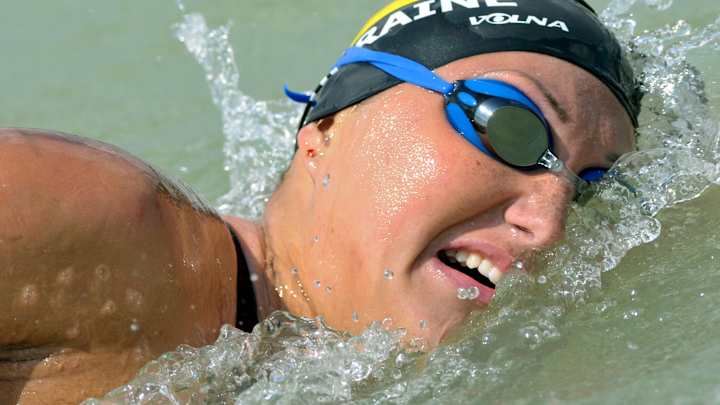IOC sanctions Ukrainian swimmer in London doping case

LONDON (AP) A Ukrainian open water swimmer was disqualified from the 2012 London Olympics on Friday after testing positive for EPO in a reanalysis of her doping samples.
The International Olympic Committee retroactively excluded Olga Beresnyeva and annulled her seventh-place finish in the 10-kiliometer open water race.
The IOC said the swimmer admitted to doping after buying a product online containing EPO, a blood-boosting substance that enhances stamina and endurance
Urine samples provided by Beresnyeva in a pre-games test in Kiev on July 28, 2012, were reanalyzed in March of this year with ''improved analytical methods'' at the doping lab in Cologne, Germany, the IOC said.
The IOC stores Olympic doping samples for a 10-year period so they can be retested when new methods become available.
Beresnyeva's case was handled by a three-person IOC disciplinary commission chaired by Switzerland's Denis Oswald.
The IOC said the athlete waived her right to attend a hearing, admitted to the doping violation in writing and accepted responsibility for her ''fatal mistake.''
''She accepts full responsibility and regrets that it happens,'' the IOC ruling said.
The IOC said further sanctions against the 29-year-old Beresnyeva were up to the international swimming federation, known as FINA. The penalty in place at the time would be a minimum two-year ban.
According to the IOC report, Beresnyeva said she decided to take EPO in 2011 after her performances declined and she did not want to miss her ''last chance'' to compete in the Olympics.
The swimmer searched online for EPO and ordered a medication called ''Eprex'' that contained the substance, the IOC said.
Beresnyeva said she began taking EPO in mid-June of 2012 and continued on a weekly basis until the end of July, just before the start of the Olympics.
She told the IOC she did not take the product to the games, where she competed on Aug. 9.
The IOC said Beresnyeva declared she was willing to take part in any anti-doping or rehabilitation programs.
The IOC has retested samples from games as far back as the 2004 Athens Olympics.
The original eight-year statute of limitations has been extended to 10 years under the new World Anti-Doping Code.
The IOC retested samples a year after the 2008 Beijing Games in search of the blood-booster CERA and caught five athletes - including Bahraini runner Rashid Ramzi, who was stripped of his gold medal in the 1,500 meters.
Retests of samples in 2012 from the Athens Olympics led to five athletes being stripped of medals for using steroids, including men's shot put winner Yuriy Bilonog of Ukraine.
---
Follow Stephen Wilson on Twitter: http://twitter.com/stevewilsonap
